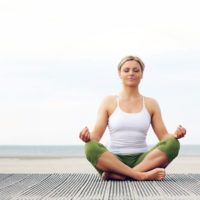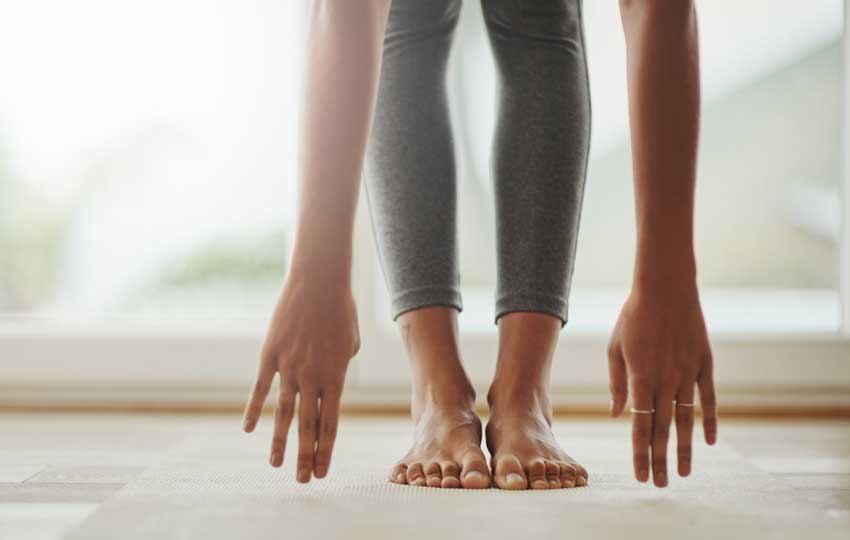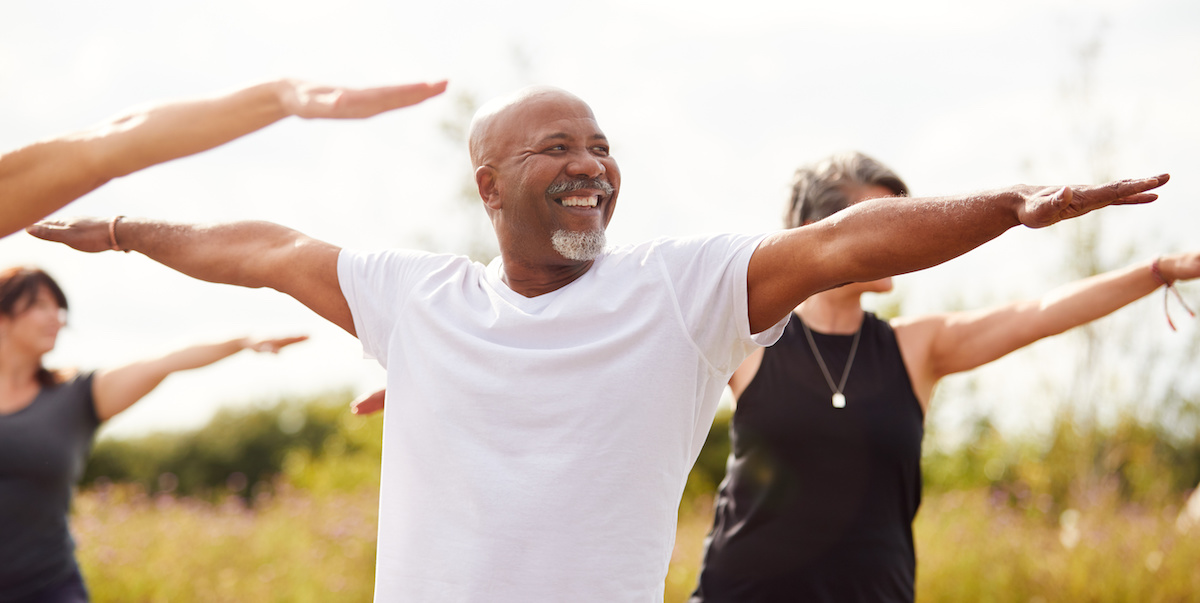Think stretching is only for runners and other athletes? Think again! Here are three benefits of stretching that improve your health, and how you can incorporate it into your daily routine.
Maybe you can no longer touch your toes when you bend forward or you can’t reach a certain spot on your back when you want to scratch it. If you’ve ever thought you’re not as bendy as you were as a child or teen, you’re probably right. We tend to lose flexibility as we age, according to a study published in the Journal of Aging Research. You can combat some of this loss of muscle elasticity with regular stretching and gain some health benefits in the process. Learn the benefits of stretching and how daily practice can shape your wellbeing.
1. Stretching eases aches and pains.
The amount of sitting we do varies per person, but even if you don’t have a desk job, you likely still spend a good portion of the day on your seat. Sitting can cause back, shoulder, neck and other pain from compromised posture, uncomfortable or non-ergonomic office furniture and tense or contracted muscles. Taking regular stretch breaks can help.
Try this: Stand up, bend your knees slightly and reach your arms toward the floor, letting them hang like a rag doll. You’ll feel a release in your upper body and back as well as your hamstrings. Slowly work toward straighter legs for a deeper hamstring stretch. Next, try a runner’s lunge on each side to release your hip flexors. Those are our “fight-or-flight” muscles that contract while we sit. For an added stretch, raise your arm overhead on the same side as the rear leg in the lunge. You can grasp the back of a chair or edge of a desk with the other hand to maintain your balance.
2. Stretching increases mobility and prevents injuries.
Tight muscles limit movement, whether you’re playing with the kids, getting in a workout, doing yard work or putting up holiday decorations. The benefits of stretching include increased flexibility, which helps you perform tasks with more efficiency and fluidity. Plus, it helps prevent injuries like muscle strains or tears.
Try this: If you have access to a belt or a rolled-up towel, grasp it between your hands, reaching your arms over your head in a wide V-shape. Still holding the towel or belt, draw your arms backward and downward behind you, and then raise them again. Repeat the motion several times to increase shoulder mobility.
Next, lie on your back. While keeping one leg straight, hug the other knee up toward your chest for 30 seconds. Then, using the opposite hand, guide that knee across the left side of your body, reaching it toward the floor. Try to keep both shoulders grounded, however. Hold for 60 seconds. Repeat with the opposite leg. This provides a gentle lumbar twist to increase back mobility.
3. Stretching relieves tension and stress.
Ever notice that your shoulders have crept up toward your ears? Whether we realize it or not, we tense certain muscles when we’re stressed or frustrated. And that leads to even tighter muscles, making us feel miserable or even more irritated. Releasing those tense areas of the body will help dispel stress and frustration and even bring on relaxation.
Try this: If you notice yourself feeling tense, hang your arms loose at your sides, either sitting or standing. Gently reach one ear down to your shoulder. Hold for 30 seconds before switching sides. While sitting in a chair, gently fold forward and hang your head between your knees. This allows for a gentle neck release. Add a shoulder stretch to this position by clasping your hands behind your back and raising your arms up and over your head. As an added bonus, getting your head below your heart can help you regain a sense of calm. You can also try these five yoga poses before bed to encourage a good night’s sleep.

Personalized care for your whole health
The Osher Center for Integrative Health at Vanderbilt provides health care designed around your whole health: mind, body and spirit. Osher cares for people with chronic pain and other ongoing health challenges. Call 615-343-1554 for an appointment.




